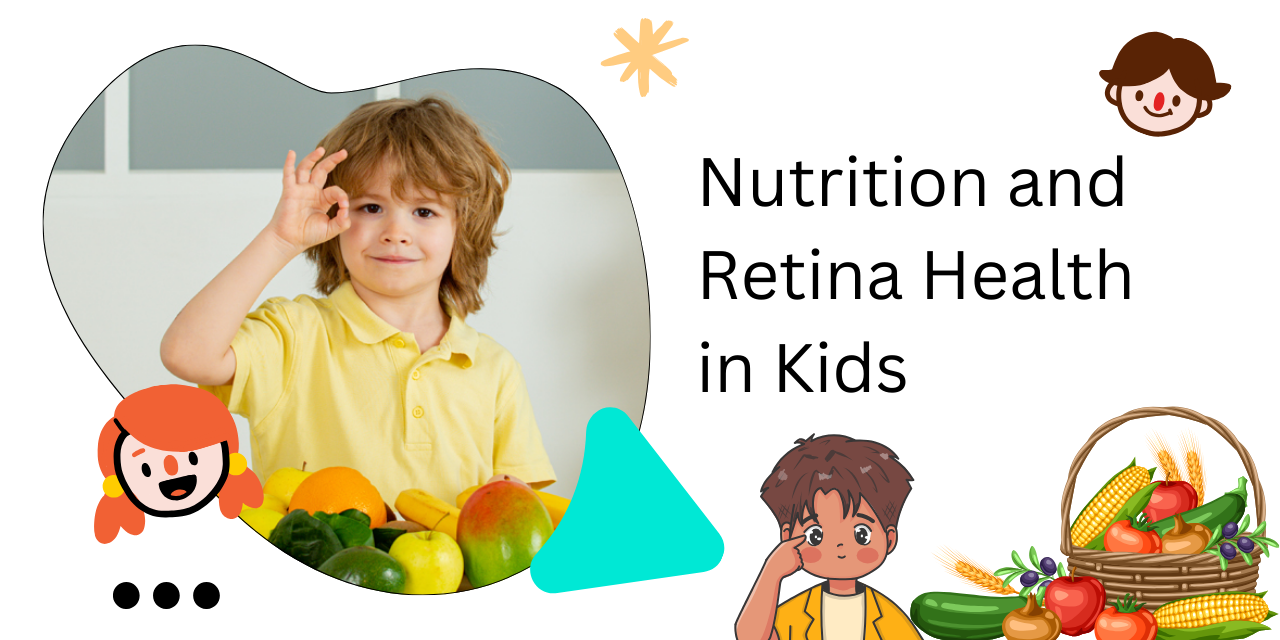Maintaining good vision is crucial for children’s overall development, and nutrition plays a vital role in supporting retinal health. The retina, located at the back of the eye, is responsible for converting light into signals that the brain interprets as images. Proper nutrition can help protect the retina from damage and support its function, which is particularly important during childhood when visual development is at its peak.
Understanding the Retina
The retina is essential for vision as it converts light into electrical signals sent to the brain, allowing us to perceive images. Any damage or disease affecting the retina can lead to serious vision problems. Children are particularly vulnerable to retinal issues due to their ongoing development. This is why ensuring proper nutrition during these formative years is crucial.
Key Nutrients for Retina Health
Omega-3 Fatty Acids: These essential fats are crucial for retinal health. They are found in high concentrations in the retina and play a role in maintaining the structural integrity of retinal cells. Foods rich in omega-3s include fish (like salmon and sardines), flaxseeds, and walnuts.
Vitamins A, C, and E:
- Vitamin A is vital for maintaining good vision and preventing night blindness. It helps in the production of rhodopsin, a pigment in the retina that aids in low-light vision. Sources include carrots, sweet potatoes, and spinach.
- Vitamin C acts as an antioxidant, protecting retinal cells from oxidative stress caused by free radicals. Citrus fruits, strawberries, and bell peppers are excellent sources.
- Vitamin E also serves as an antioxidant and may help reduce the risk of age-related macular degeneration (AMD). Nuts, seeds, and green leafy vegetables provide ample vitamin E.
Lutein and Zeaxanthin: These carotenoids are found in high concentrations in the retina and are known to filter harmful blue light. They can be found in foods like kale, corn, and eggs.
Zinc: This mineral is essential for maintaining the health of retinal cells and plays a role in transporting vitamin A from the liver to the retina. Foods rich in zinc include meat, shellfish, legumes, and seeds.
The Impact of Poor Nutrition on Retina Health
Inadequate nutrition can lead to various eye problems in children. For instance:
- A deficiency in vitamin A can result in night blindness or more severe conditions like xerophthalmia.
- Insufficient intake of antioxidants may increase the risk of developing retinal diseases due to oxidative damage.
- Lack of omega-3 fatty acids has been linked to dry eye syndrome and other visual impairments.
Practical Tips for Ensuring Proper Nutrition
To promote optimal retinal health in children:
- Encourage a Balanced Diet: Incorporate a variety of fruits, vegetables, whole grains, lean proteins, and healthy fats into their meals.
- Limit Processed Foods: Reduce consumption of sugary snacks and processed foods that offer little nutritional value.
- Promote Healthy Snacking: Offer nuts, seeds, fruits, and yogurt as healthy snacks instead of chips or candies.
- Educate About Eye Health: Teach children about the importance of nutrition for their eyesight to instill lifelong healthy eating habits.
Conclusion
Nutrition plays a pivotal role in maintaining retina health in children. By incorporating essential nutrients such as omega-3 fatty acids, vitamins A, C, E, lutein, zeaxanthin, and zinc into their diets, parents can help protect their children’s vision and overall eye health. Regular eye check-ups are also important to monitor retinal health and address any potential issues early on.If you’re looking for expert guidance on retina treatment in Patiala, consult Dr. Datinder Batish at Dr. PreetInder Singh Eye Hospital. For more information, please contact us at +911752227169.

